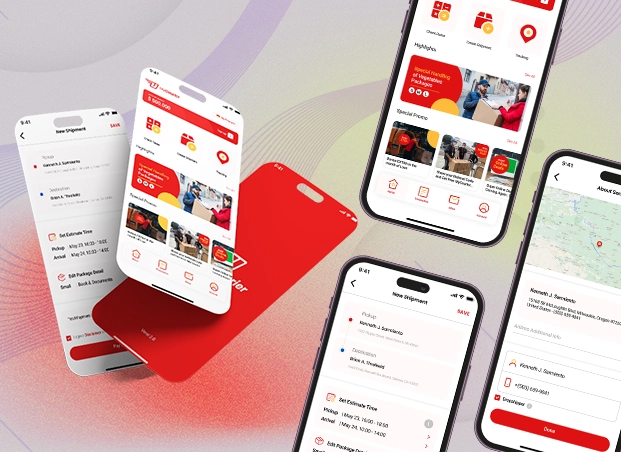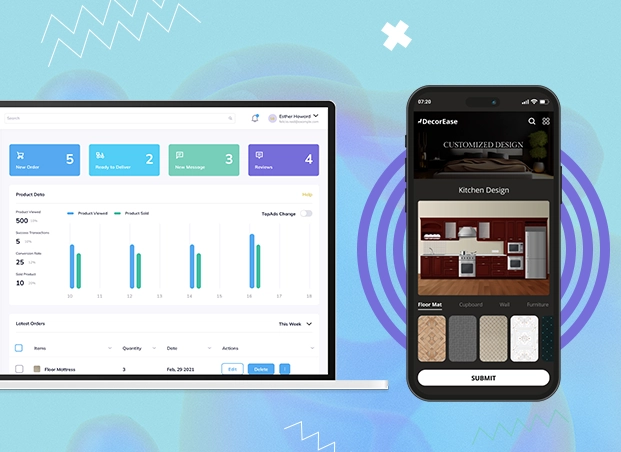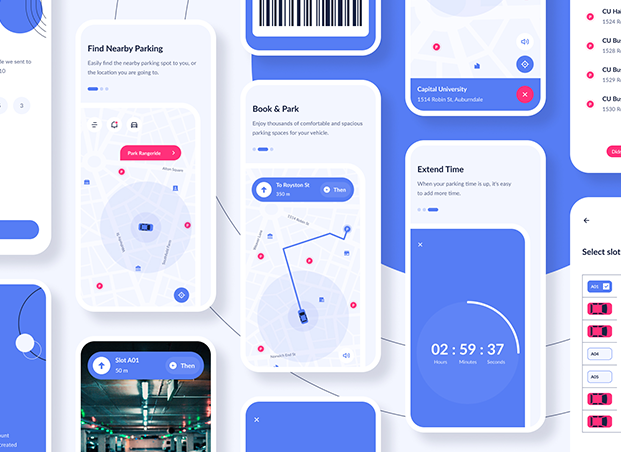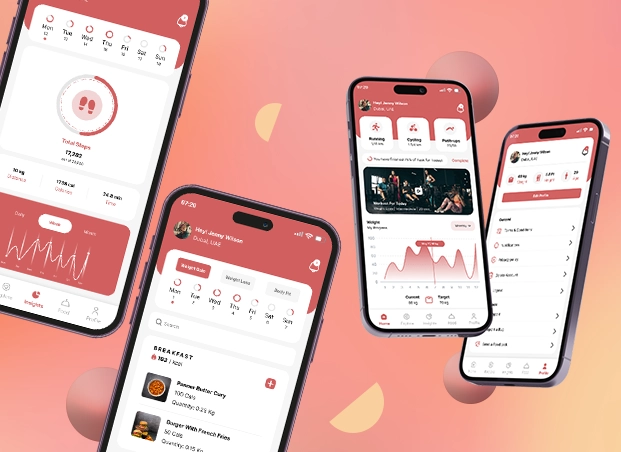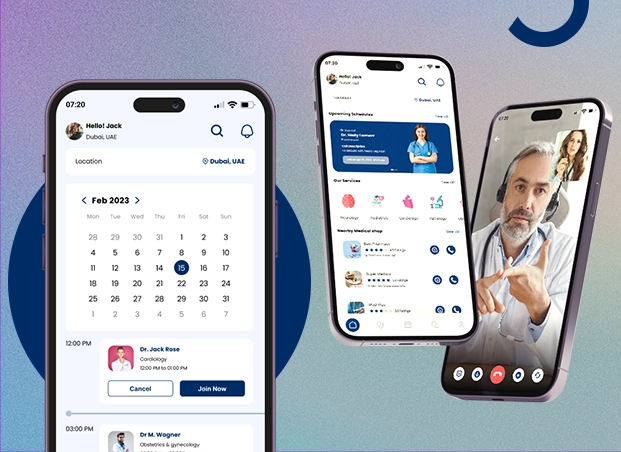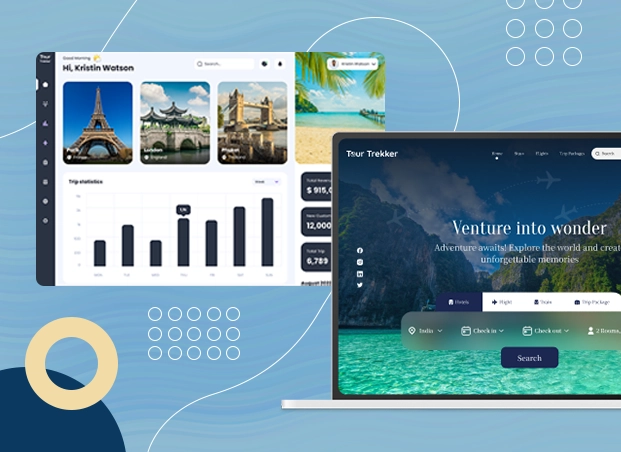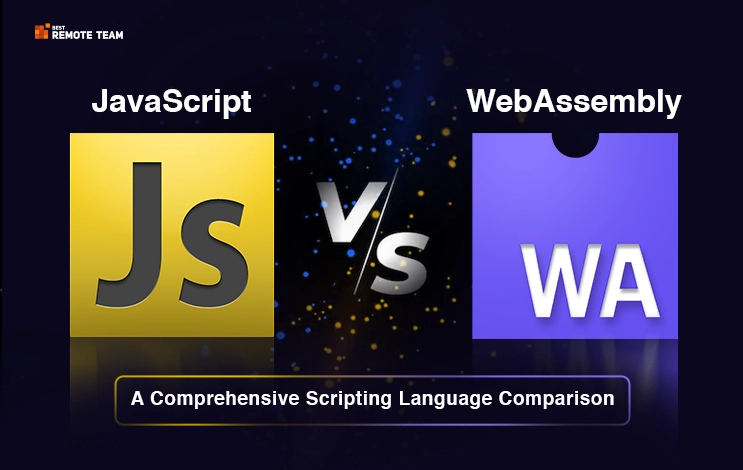What is Next.js?
Next.js is the powerful javascript framework for developing fast-loading and scalable server-side rendering and static web applications. It was developed by team Vercel in 2016 to reduce the use of multiple tools and help programmers develop large-scale applications easily without much headache.
Research says Next.js has been the 6th most-loved framework by developers and engineers because of its amazing features and ease of development. In short, it has everything you need to build high-quality web applications.
There are plenty of reasons why web developers love Next.js, they are: build-in optimization, react server components, middleware, data fetching, route handlers, and many more.
This makes Next.js perfect for any kind of digital product, web app, and large-scale enterprise projects. You can build web platforms, single websites, static pages, e-commerce or retail websites, MVP, saas products, and many more innovations.
Eventually, Next.js is capable of fulfilling any business needs without compromising security, scalability, and performance. Not only this, it also helps to create a highly customizable and functional eCommerce store using pre-build templates, popularly known as Next.JS Commerce.
Exploring Next.JS Usage: Fresh Data and Insights
We can’t deny on fact that in recent years, Next.js got a lot of attention from big enterprises and web developers due to its useful features and easy use. Let’s explore some statistics about the Next.js.
- The Stackoverflow survey says that Next.js has become the 4th most popular framework used among web developers.
- Recent research has found that over 1.3 million websites are developed on the Next.js platform.
- Top e-commerce platforms like Walmart, Samsung, Shutterstock, and many more use Next.js for their online store.
Below are the e-commerce stores using Next.js
- 34% use a custom cart solution.
- 33.1% use Shopify.
- 15.8% use OMG.
- 4.9% use Magento.
36.7% of developers use the Next.js framework for building web apps.
Benefits of Using Next.JS For App Development
Do you know the famous brands that you use like Netflix, Nike, Hulu, Uber, Starbucks, and more use NextJS to offer faster loading and security? This may make you think about how Next.JS helps large firms!
Next.js is faster than angular and react JS because of its server-side rendering functionality. Below are some of its benefits:
#1. Server and client-side routing
Each and every page is pre-loaded using minimal JS code hence whether the page is fetched from the client or server side, it loads quickly with better interactivity.
#2. Next-level UX
It is easy to meet user expectations when you can place components and widgets without worrying about loading issues. Next.js supports dynamic content rendering hence every UI/UX element loads faster and provides an impressive experience.
#3. SEO-friendly
It helps to get organic traffic because of its built-in SEO features. As it supports server-side rendering and static site generation, web apps are pre-rendered, making them easy to crawl and visible on search engines.
#4. Omni-channel
The web apps/ websites made on Next.js work perfectly fine on any device hence it provides a consistent and high-quality experience on all devices.
#5. Best community support
As react JS and Next.js are used by top and popular businesses nowadays, there are lots of discussion forums and network communities to get quick help and solve any problem without hassle.
#6. Automatic code splitting
Next.js splits the code and loads only the necessary javascript according to the requested page. Hence this loads the page faster and prevents the user from downloading unnecessary code. No unnecessary code sharing means extra security.
#7. Faster performance
It offers guaranteed best performance due to its automatic code splitting, hot reloading, and data rendering functionality.
#8. Faster time-to-market
Next.js comes with so many pre-built components that are perfect for making cross-compatible websites or apps. Hence if there is any urgent project requirement, you can simply use that ready-made component, send MVP to the client, and deliver the product faster.
What Skills To Look For While Hire Next JS Developers?
You can achieve the expected result when you hand over the project to right Next.js expert. The next important thing is always to get the Next.js developer hired by technical professionals who understand the below terms and its uses to hire the best match.
Below are some important skills to check while you hire Next.js developers.
#1. Proficiency in JavaScript and React
As Next.js is a framework based on React JS, the developer must know how to use its core components like front-end libraries, hooks, concepts, and lifecycle to easily integrate and reuse the components.
#2. Technical expertise with server-side rendering (SSR)and static site generation(SSG)
SSR and SSG play a crucial role in web app development because they are responsible for pre-rendering pages and enhancing load times. This is directly connected to app performance so, make sure the developer you hire has a strong command over these two things.
#3. Familiarity with CSS and styling
Developers must have hands-on expertise in using CSS, and HTML to style the web app to make it appealing and functional as per client requirements.
#4. API integration
Developers must know how to fetch API within the app and how to integrate and work safely with RESTful or GraphQL APIs.
#5. Version controls and collaboration
Proper collaboration is key to developing a successful project. Developers must have experience in using Git and version control to manage code properly among the team members. Tools like GitHub, bitbucket, etc make project management easier as developers working remotely can review and access the code securely.
#6. Expertise in performance optimization
Performance is the top-most priority hence you must look for skills in tools like Lighthouse and NextJS analytics, and other in-built Next.js tools to identify issues and optimize the web app performance accordingly. Always go for experienced developers when it’s a matter of performance.
#7. Testing and debugging
Developers should know jest and be able to use other testing and debugging tools to spot and fix app errors. Here you need someone with high-level experience whom you can rely on for quality assurance.
#8. Knowledge of cloud and serverless deployments
Developers should be experts in using Vercel, AWS Lambda, and Netlify. Plus skills in CI/CD pipelines and docker are also important for easy development and deployment both.
#9. Knowledge of API routing and data fetching
Knowledge of API routing and data fetching are basic operations in the Next.js. Asses developers for how they use server components and other features via page routers and app routers. he/she must be able to use getStaticProps, getServerSideProps, and getInitialProps for data fetching.
Additional Considerations To Keep In Mind While Hire Next JS Developers
Apart from technical skills and other expertise, other non-tech skills also matter and decide how the project will carried further.
- Relevant Experience: Check if the developer has worked on projects similar to yours. Whether it’s a simple website or a complex web app, their past experience should match your project’s needs.
- Good Communication: A developer should explain technical things in a way everyone can understand, whether they’re talking to a teammate or a non-technical manager.
- Willingness to Learn: Next.JS is always improving, so hire someone who loves to learn new stuff and easily adapts to the updated with the latest tools and techniques to keep your app competitive.
- Team Compatibility: A successful project depends on team bonding, this might not be a technical factor but it affects performance and how member within the team supports each other emotionally and professionally.
- Proven Work: Go through their previous projects to see the quality of their work and how they’ve handled challenges.
Common Challenges In Next.JS And How To Overcome It
As a coin has two sides, there are also some Pros and cons of Next.JS. Below are some of the common challenges and their solutions to help you deal with the Next.js complexities.
- Slow Rendering for Large Pages
If your app has lots of pages, sometimes you may notice slow rendering. But don’t worry, this can be fixed using Incremental Static Regeneration (ISR). This helps to update the needed parts of your page without slowing the entire site.
- Tricky Dynamic Routes
If the developer is not enough skilled with API routing and data fetching, he/she may face issues in using server components and fetching data.
- SEO for Dynamic Content
Dynamic pages with high-level scripts may be difficult to meet SEO standards. Use Next.JS’s Head component to manage meta tags and pair it with server-side or static rendering so, that search engines can easily understand your pages.
- Managing App-wide Data
Keeping track of global data in bigger apps can get hectic. Use tools like Redux or React Context to make managing state easier and ensure smooth app functionality.
Lastly, challenges may differ according to the developer, the complexity of the application, and certain other factors. It’s good to stay updated with the latest changes and participate in discussions and forums to learn about various issues and their solutions.
Common Interview Questions For Next JS Developers
Every developer is different in its way and has its own technical talent. To make sure you select the best professional for your valuable project, don’t forget to ask the below questions and whatever comes to your mind.
- What is Next.JS, and how does it differ from React?
This helps you understand a little bit of theoretical knowledge along with practical implementation of Next.JS’s features like SSR, and SSG.
- Explain how server-side rendering (SSR) works in Next.JS.
Look for a detailed understanding of SSR and its impact on performance and SEO.
- How does Next.JS handle routing?
The whole application performance will depend on routing and using serverless components so, make sure to ask the process and logic of static and dynamic routes.
- How would you optimize the performance of a Next.JS app?
This question will let you know their analytical and thinking skills and give an idea of how they use solutions like lazy loading, code splitting, and using Next.JS’s built-in optimizations.
The interview questions can vary based on the experience of the developer so prepare the list of skills you want to assess before interviewing the candidate. If you are asking fresher, you can start with basics like a comparison about Next.JS vs React, Remix vs Next.JS, and Next.JS vs Angular, and then follow with the written technical test.
If you are interviewing an experienced developer then ask about state management techniques like redux, context API data fetching methods, Recoil, Zustand, etc.
Apart from technical expertise, other skills also matter. They are
- Problem-Solving Skills: Check how the developer uses the brain to resolve unexpected issues.
- Adaptability: Technologies are continuously upgrading and improving. See the compatibility of the developer with the changing trends and how easily he/she adapts and understands the changes.
- Collaboration: When different types of minds with different skills and natures work together, conflicts or disagreements might happen, check how developers handle this situation.
- Project Understanding: In case of any new project requirement, how quickly the developers understand things.
- Work Ethic: When working with remote companies, not all days are the same. Some days are easy and some might be tightly-scheduled hence see if developers is able to handle workload and manage multiple tasks.
- Time Management: The developer must handle deadlines with smart work and properly handle the work in an organized way.
- Cultural Fit: Check if the developer fits into your culture because this impacts team collaboration as well as performance.
Country-Wise Breakdown: Next JS Developer Hiring Costs
The Cost of Next.JS development services depends on the country from where you hire remote developer. There are many other factors that gets counted into this like the engagement model you choose, developer experience, complexity of the project, scope, tech stack, tools used, hiring platform, and many more.
To give you a clear-cut idea, we have prepared a cost chart to analyze and compare accordingly.
Cost by hourly rates:
| Country |
Hourly Rates |
| United States |
Between $100-$150 |
| Western Europe |
$80-$120 |
| Eastern Europe |
$40-$70 |
| Asia |
$30-$50 |
| South America |
$30-$70 |
| Columbia |
$25–$45 per hour |
| Costa Rica |
$26–$68 per hour |
NOTE: The overall cost can differ based on experience and the level of technology you go for.






















